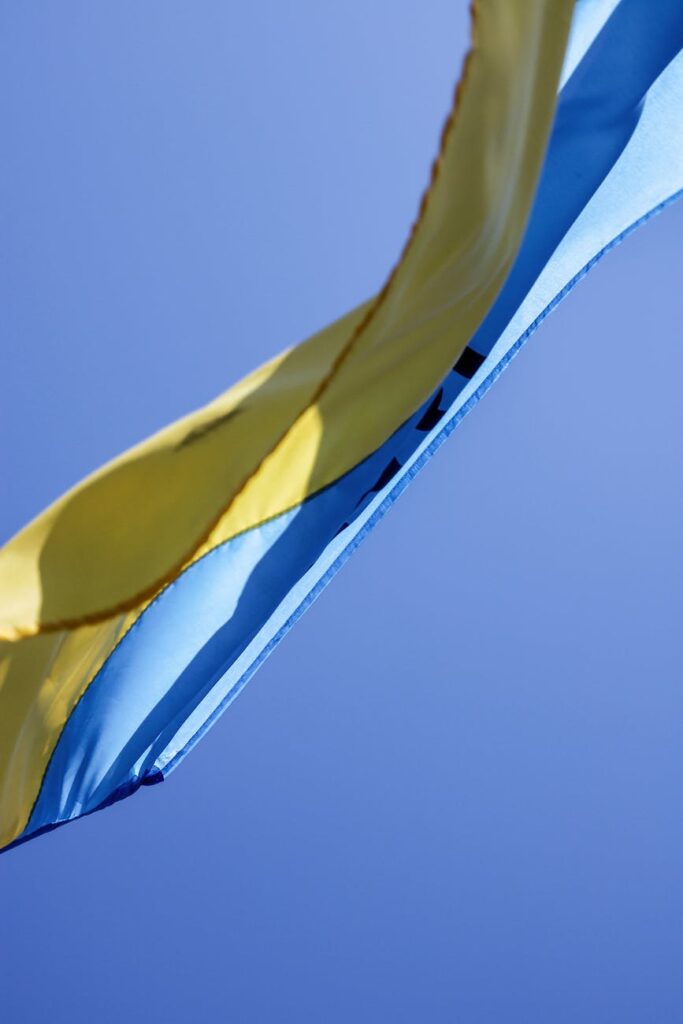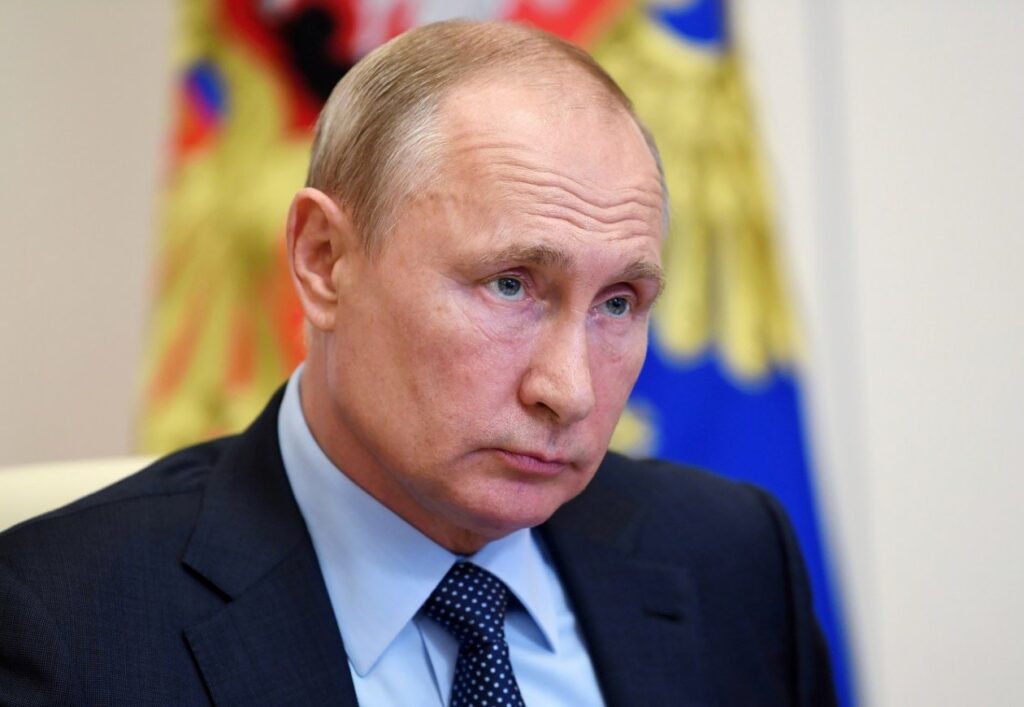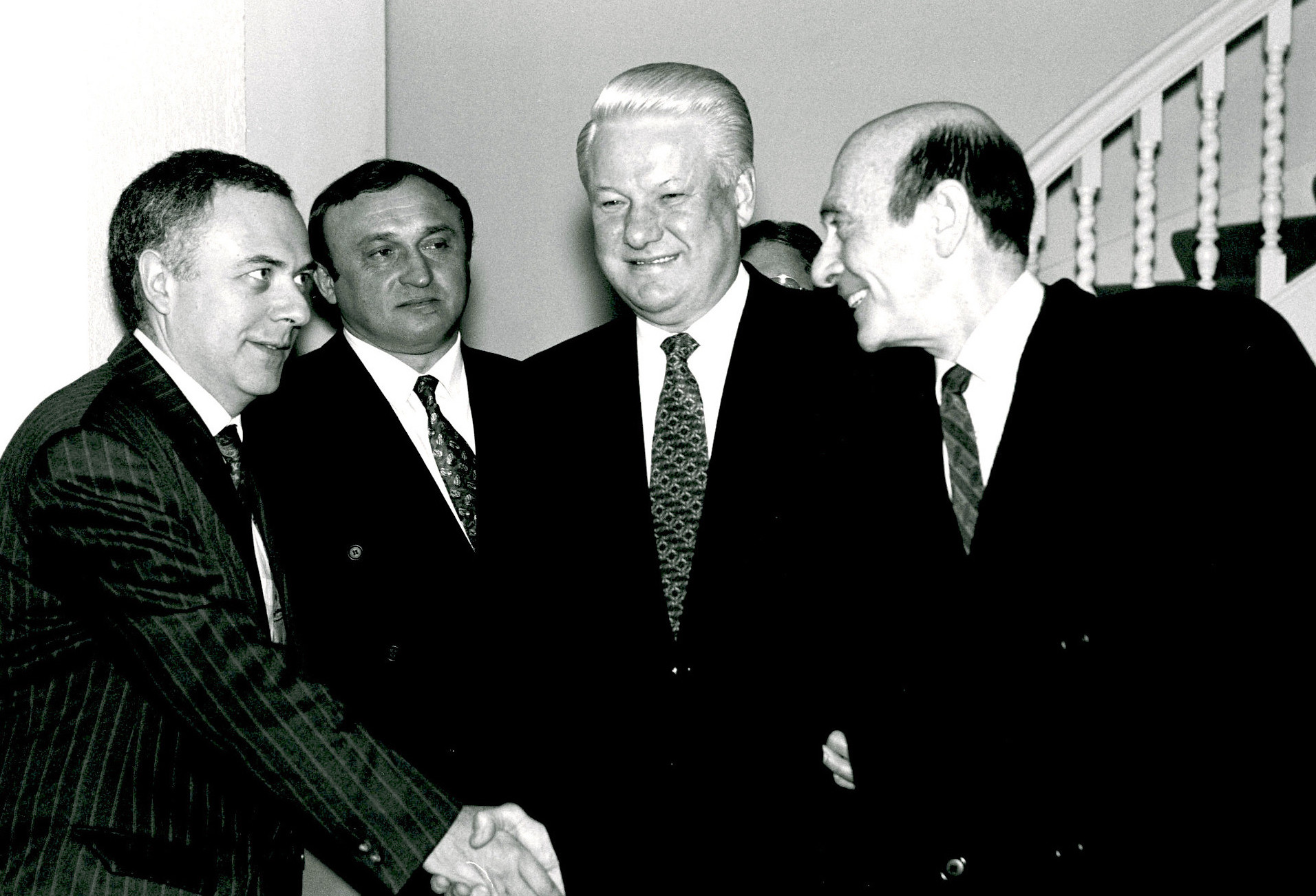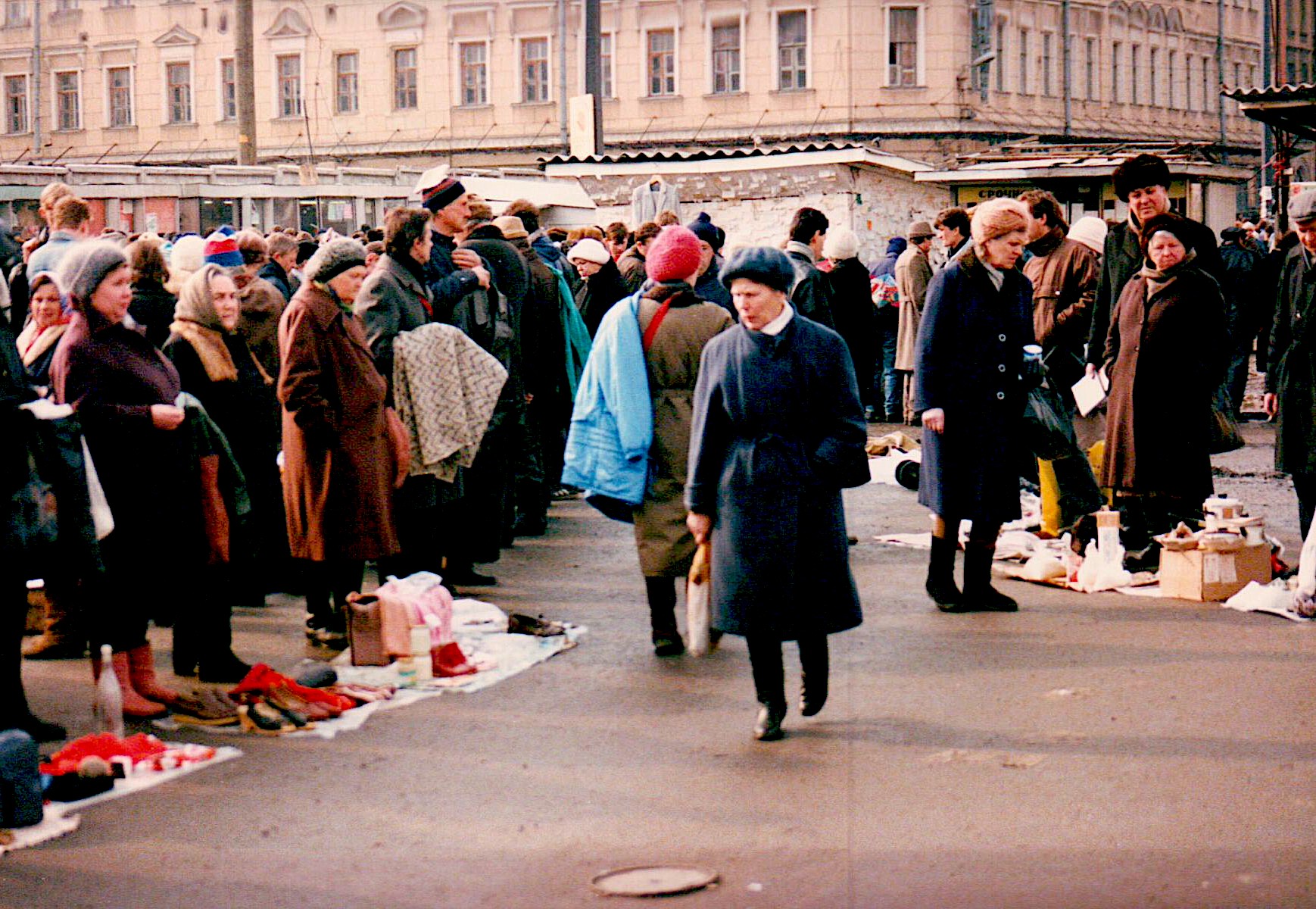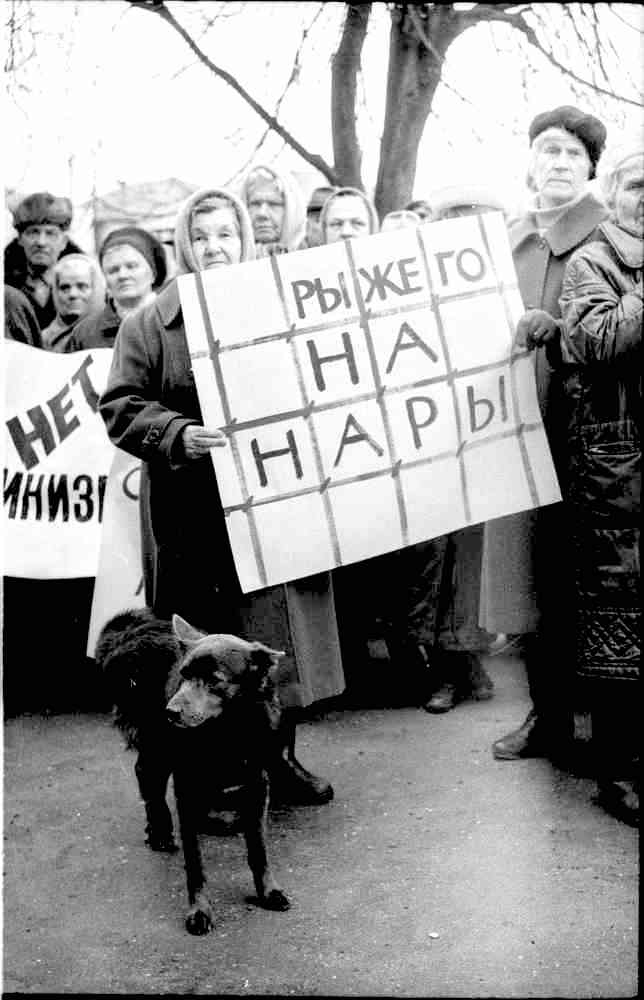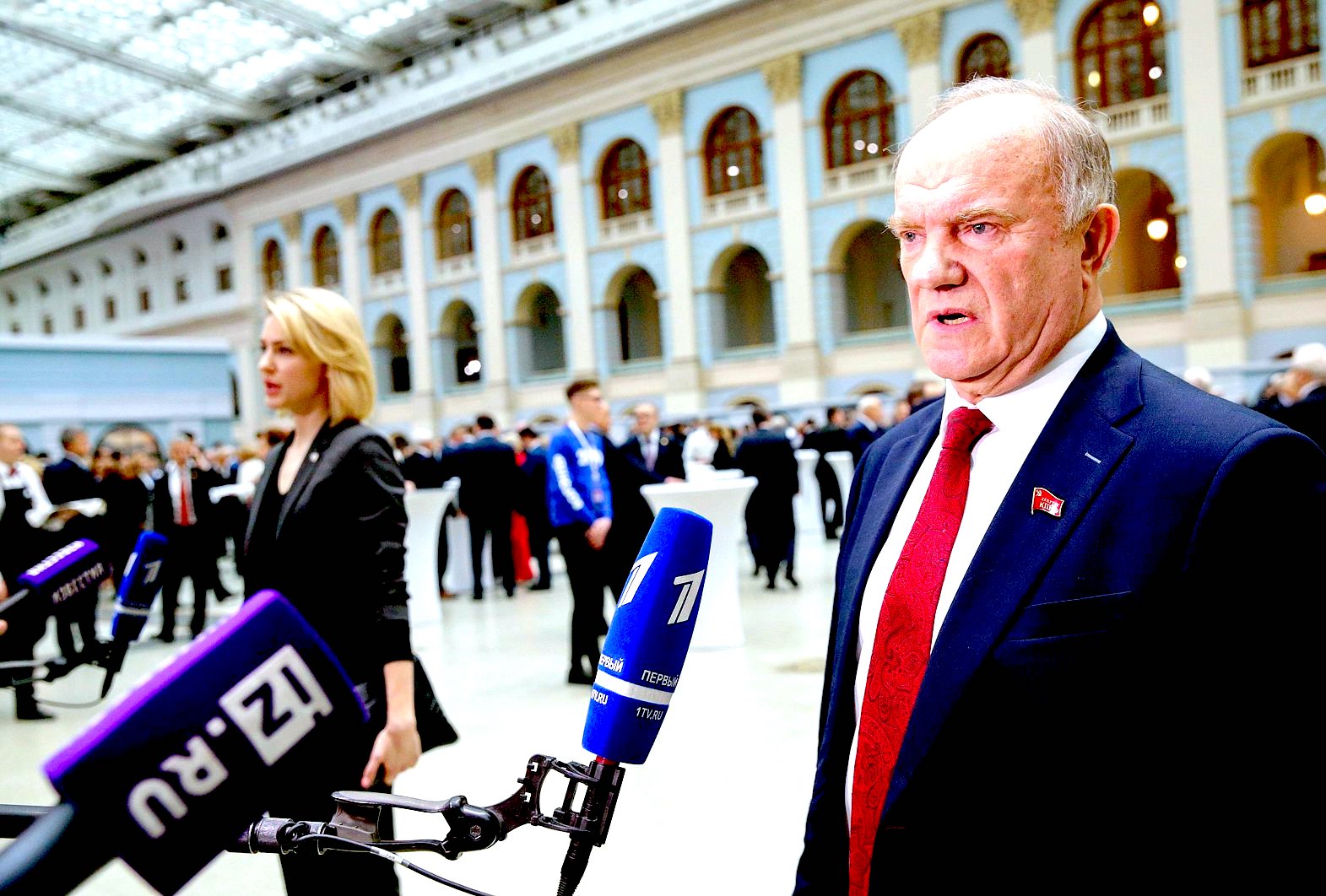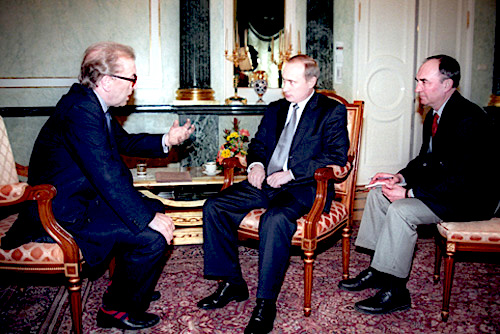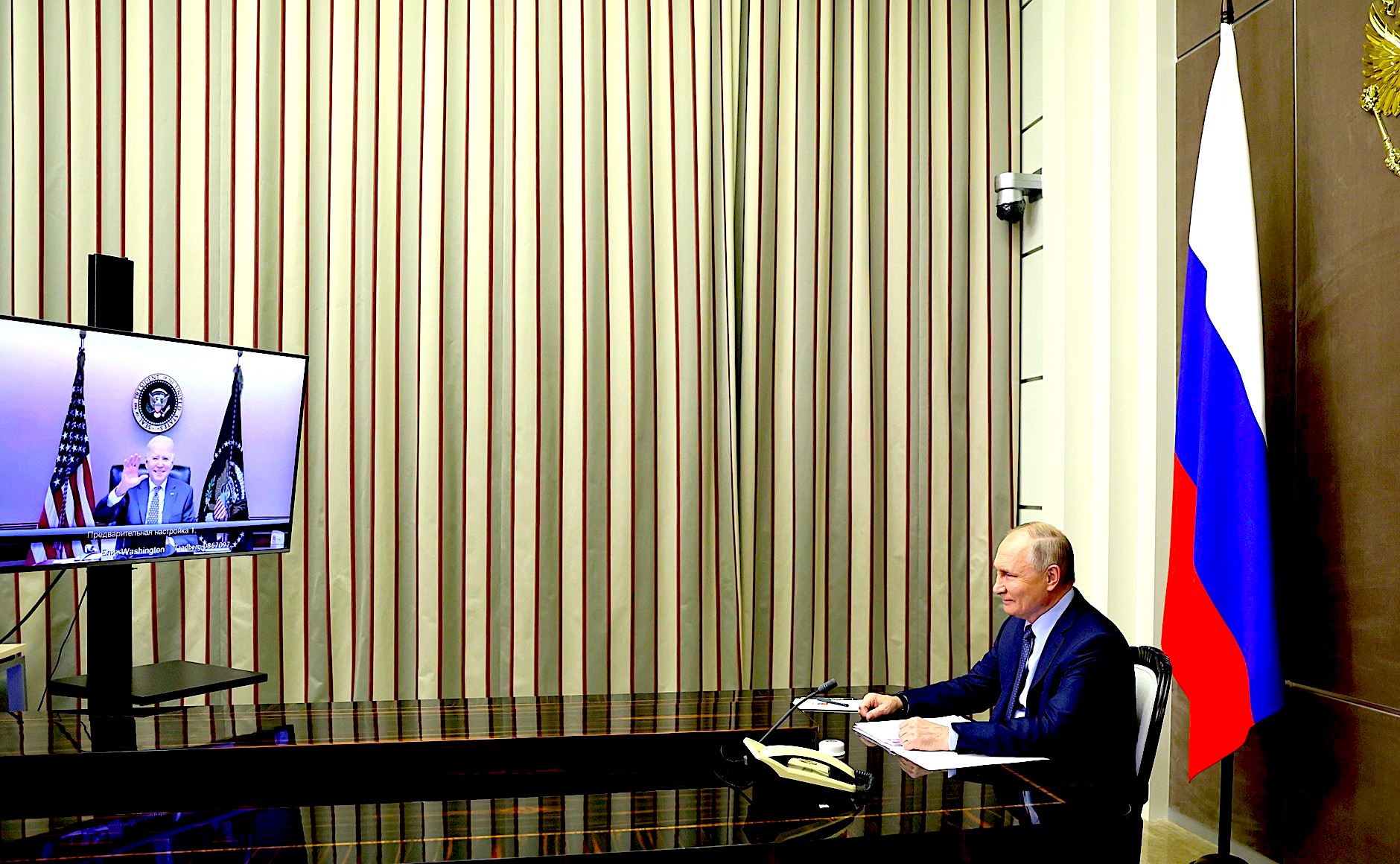
By Stephen Bryen, Asia Times, 12/20/23
Stephen Bryen, who served as staff director of the Near East Subcommittee of the US Senate Foreign Relations Committee and as a deputy undersecretary of defense for policy, currently is a senior fellow at the Center for Security Policy and the Yorktown Institute.
The British are about to sign a Naval Security Pact with Ukraine, doubling down on their support for the sinking Volodymyr Zelensky-led country.
Meanwhile, Germany is upping its arms commitment to Ukraine, even though its arms stockpile is practically empty. Both the UK and Germany are emptying their wallets and their arsenals while the US is trying to do the same thing.
At the same time, the Washington Times, in an article by Bill Gertz, reports that Representative Mike Gallagher (R-Wi), who is the chairman of the House Select Committee on the Chinese Communist Party, has come up with some novel ideas to help Taiwan make use of otherwise obsolete weapons in the US arsenal, mostly because getting new weapons right now is nearly impossible.
Gallagher says “Recent war games simulating conflict with China over Taiwan revealed that the US would run out of long-range precision-guided bombs and missiles less than a week into the conflict.”
Bill Gertz reports that the Pentagon has a backlog of more than US$2 billion worth of weapons that Taipei purchased, held up by defense industry delays.
Taiwan is currently waiting on 400 Harpoon missiles and 100 Harpoon launchers that the Pentagon announced in a sale over three years ago and which may not reach the island until 2029.
The key point is that it will take five more years (eight years total) to deliver Harpoon missiles to Taiwan. It is even worse for other war stocks such as 155mm and 120mm ammunition.
The weakness and problems of the American defense industrial base pale in insignificance to the manpower shortages affecting most NATO members as well as the US.
Germany’s small army is lacking new recruits. Like the US, Germany has a volunteer force, but things are getting so bad the German government is thinking about some kind of conscription system.
With the current German government already rapidly losing political support, trying to get the Bundestag, Germany’s parliament, to vote in any conscription system would be political suicide. Boris Pistorius, Germany’s defense minister, understands the problem but has no solution likely to gain popular support.
Politics in Germany is sliding to the right, with the AfD, Germany’s right-wing party, securing growing voter support. The AfD has not yet taken any position on conscription, but it is a nationalist party that would like to see the sanctions on Russia lifted and does not support any European-wide defense initiative.
The total number of armed forces personnel in Germany had dropped to 181,383 as of the end of October, with thousands of vacancies unfilled.
The German tabloid Bild says that the German army has neither the strength nor the equipment required to effectively defend the nation. Yet, at the same time Bild was pointing out the military crisis, Germany announced it is sending a 5,000-strong brigade to Lithuania.
It will be stationed less than 20 kilometers (12 miles) from the border with Belarus. The brigade relocation will start in the second quarter of 2024, with it scheduled to reach full combat readiness by 2027, according to the German Defense Ministry.
But, says German Defense Minister Pistorius, “We do not have an army which is capable of defending the country against a military offensive, a brutal war of aggression.” The contradiction is self-evident.
Britain’s army is also a big problem. Defense and Security Monitor reports that “Long considered a world-class military, the British armed forces are now stuck in a recruitment rut, with planned personnel cuts still to be implemented under the Defense Command Paper unveiled in 2021. There are significant and persistent issues involving dilapidated military housing, depleted ammunition and poorly executed procurement programs.”
Sky News, as reported by The Defense Post, “outlined the scale of the problem being faced by the UK armed forces. It said that the military would run out of ammunition just after a few days in case of an armed conflict. The country also reportedly lacks the ability to defend its airspace given the increasing power and capabilities of today’s missiles and drones.
Additionally, full replacements for aging British tanks and armored vehicles are not due for years, thereby affecting its modernization drive. Sources claim it would take five to ten years for the British Army to be able to field a warfighting division with more than 30,000 troops and backed by high-powered tanks, artillery systems, and helicopters.”
Today, the British Army is smaller than it was at the time of the American Revolution in April 1775. The entire British military is made up of 142,560 members. The British army currently has 77,540 soldiers in all its ranks. This means that the fighting force itself is much smaller, likely around 30,000.
Britain has been Europe’s biggest booster of Ukraine in its war with Russia, emptying its high-tech arsenal to support the Ukrainian army. Britain also is providing field support to Ukraine and battlefield intelligence, along with planning special secret operations such as trying to destroy the $3 billion Kerch Strait bridge connecting Russia to Crimea.
Not much is written about the French army. We do know that French equipment has not fared well against the Russians in the Ukraine war. Its CAESAR (Camion Équipé d’un Système d’Artillerie ) has been a big disappointment on the battlefield, is subject to breakdowns and has been targeted by Russian Lancet drones.
France sent 18 of them to Ukraine, 25% of the entire fleet of these mobile 155mm gun systems. According to reports, producing new ones takes years.
Likewise, France’s AMX-10C RC Infantry fighting vehicle has proven to be a death trap for Ukrainian operators who regard its “thin armor” as inadequate for front-line use. Billed as a “tank destroyer”, it is often the one that is destroyed. In respect to tanks, after the bad experience with the AMX and the German Leopard tanks, France decided against sending its Leclerc Main Battle tanks to Ukraine.
In fairness, the US Bradley Infantry Fighting Vehicle and the German Marder tracked combat vehicle, not to mention the ill-fated Leopard tank, have all been destroyed in Ukraine. A US study by Rand Corporation, an important Pentagon contractor, says that France’s army is a fragile ally against Russia.
The US Army is also facing a recruitment crisis. Not only are there problems filling the ranks, but the Army is having trouble graduating capable non-commissioned officers (NCOs). NCOs are the heart and soul of the American army, they are what makes the army function.
Less than half the slots are being filled. Military.com says “The eight-week Army Recruiter Course at Fort Knox, Kentucky, can train a maximum of 2,866 students across a total of 53 classes. However, data shows that it graduated only 1,336 in fiscal 2023, which concluded at the end of September.”
The Army itself is facing problems recruiting soldiers, this year and last. The Army was 10,000 soldiers short of its goal of 65,000 new troops over the past fiscal year. Last year, it missed a goal of 60,000 soldiers by 15,000.
The Army is trying to fix the problem but a lot of it is based on the strange WOKE approach of the Army’s leadership and myriad complicating issues, particularly since the Covid epidemic when the Pentagon ordered troops to get vaccinations or get booted out of the military. Now there are plenty of lawsuits over the Pentagon’s failed policy.
Beyond deficits in manpower and supplies, NATO armies lack combat experience, although plenty of “advisors” are in Ukraine supporting the Ukrainian military. Advisors never replicate what front-line troops experience so the learning curve may be worthwhile in boosting tactical and operational knowledge but not in warfighting itself.
Ukraine is also facing a huge shortfall in manpower and its use of draconian recruitment efforts is unpopular and could force Zelensky to resign. Impressed and dragooned soldiers don’t fight effectively and are only canon fodder at best.
Worse still, many of those who resisted the Ukrainian draft (some of them paid off draft administrators in amounts typically of $1,000) come from the Ukrainian nomenklatura, namely the upper classes or those with high-level skills or those from politically connected and privileged families.
The Biden administration argues that defeating Russia in Ukraine will protect Europe from a future Russian attack.
The counter-argument is that continuing to support Ukraine could lead to an expansion of the war into Europe. For a long time, the US and its allies have been playing chicken with European security by gorging Ukraine with weapons, advisors, military and intelligence support and lots of cash.
So far at least the Russians have not responded by attacking supply lines outside of Ukraine, nor have they stopped the flow of gas or other commodities (including uranium) to Europe and the United States as a response to Western support for Ukraine.
Most reports show that Russia has gained the upper hand in Ukraine and has started what appears to be a limited offensive that seems to be aimed, so far at least, in securing Donbas. However, armies often collapse quickly once military leaders and soldiers alike think they are about to be rolled over.
In Vietnam in 1975, US military leaders thought the Army of South Vietnam would be able to hold I-Corps, the northern part of South Vietnam, against attacks launched by the regular North Vietnamese army (NVA). It was a pipe dream. I-Corps folded in a few days and the NVA moved quickly southwards, heading for Saigon. The rout was on.
Fixing NATO is a very difficult problem because it has been pretending to be an offensive alliance and not a defense system. With its mission corrupted and its border with Russia vastly expanded (almost all of Eastern Europe and Finland), NATO’s ambition to add Ukraine is a country too-far because this time the Russians did not accept NATO’s expansionism goal.
If Ukraine capitulates, which is now what Russia says it wants, NATO will suffer a major defeat, the first defeat since the alliance was set up in April 1949.

